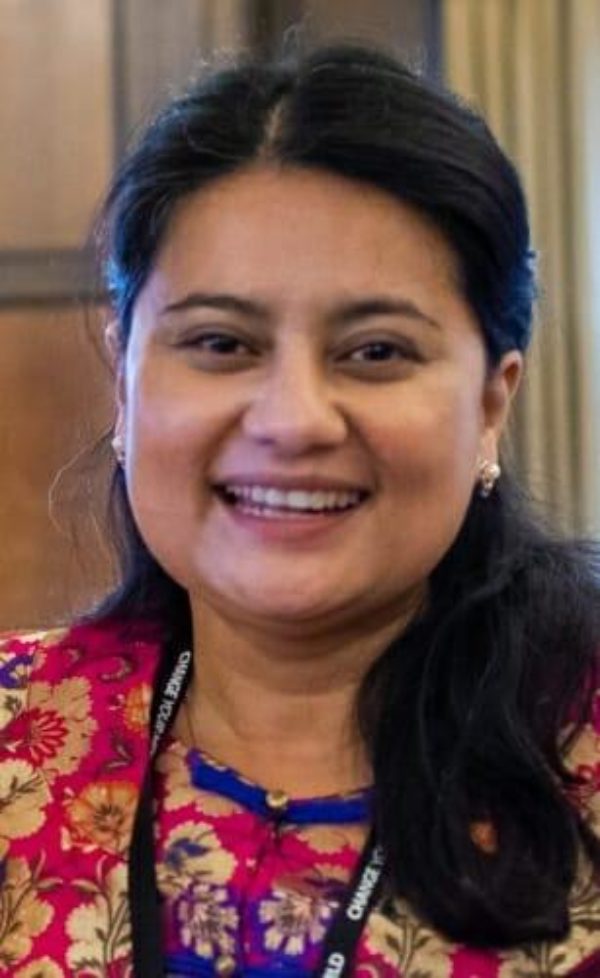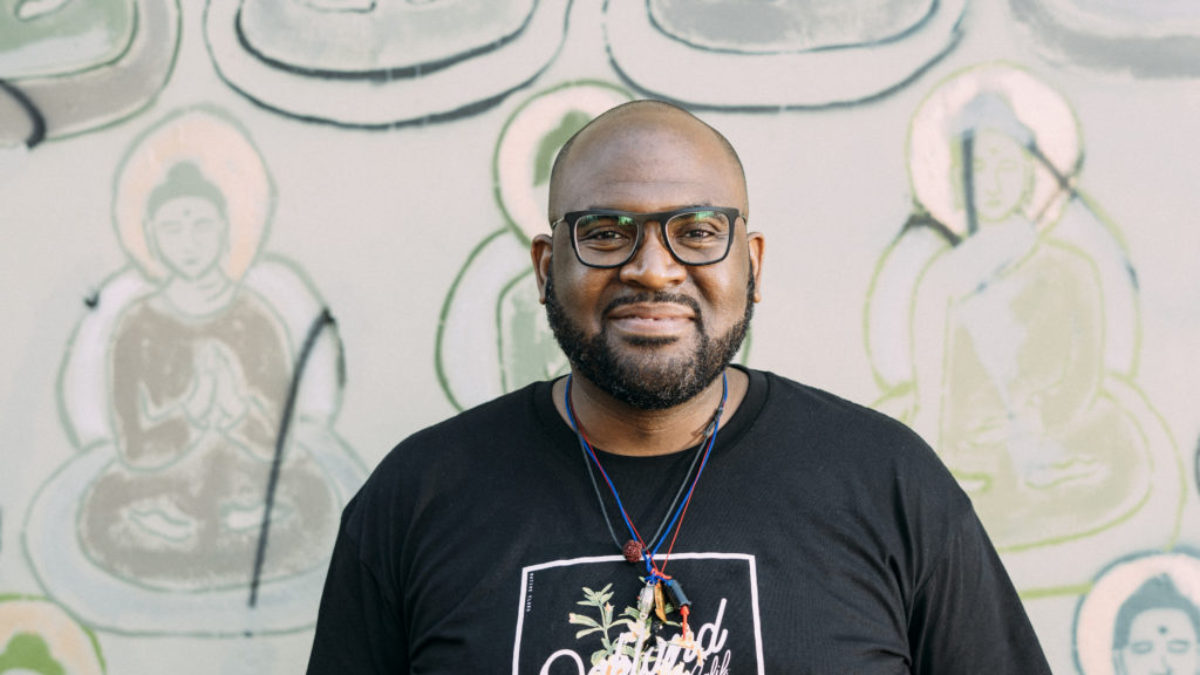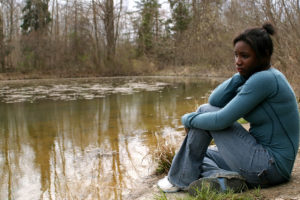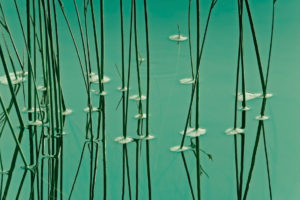
We’re living through a moment of global struggle with the COVID-19 pandemic and continued racial unrest in the United States. Yet, with struggles also come rich insights that are allowing us to rethink our common humanity and how we care for the planet.
Dekila Chungyalpa is the Director of the Center for Healthy Minds’ Loka Initiative, an environmental and climate education and outreach platform for faith leaders and religious institutions at the University of Wisconsin-Madison. She recently hosted a conversation with Lama Rod Owens, a Buddhist teacher, author and minister from Harvard Divinity School, on ways people can understand the messiness and pain of this moment, but also the opportunity for profound change and transformation that can unfold.

Lama Rod: We are learning about impermanence and death from COVID-19. This virus is teaching us to create real relationships with one another, to create community, and to get involved in our political system. Wearing masks is the best thing for us right now. Not just because it's reducing the spread of COVID-19, but also because it actually forces us to think about why we wear a mask. We choose to wear a mask to protect other people because we are part of a community and we can decrease the negative impact on our community. Those who resist are afraid of connecting, because connecting means that you take responsibility for the violence or harm you do to others.
Additionally, America (where you and I both live) has sustained itself through separation and disconnection, and individualism has been the vehicle of systems of oppression and power that drives the economy and the culture. But, that way of thinking is gradually lessening and people who think that way are getting left behind. Because as more people choose to connect and come together, more people become educated and understand for example, why Black, Indigenous and People of Color are calling for defunding the police so that there is more money for social services around mental health (and other preventative solutions) which benefit everyone in the end. I choose to work at the edge because the edges are where the movements happen. This is how we start creating new systems and new institutions. A new world is going to emerge because we cannot continue to exist in an age where patriarchy and capitalism are this disruptive and harmful to people and the environment.
Dekila: What gives you hope and courage?
Lama Rod: The gift and the curse of impermanence is that anything can happen. Yet impermanence is also hope because anything can happen. When I hope, I’m making aspirations and praying that things will happen that are beneficial. Courage for me is about moving through fear. It goes beyond aspiration and prayers and actually moves toward how can I benefit people. It’s not about me anymore, it’s about the collective.
Environmentalism is a personal thing because we have to do the emotional labor ourselves in order to reconcile our own pain and our own discomfort with the harm done to the planet through our individual and collective acts. Once we have done that labor around our emotional lack, we will be able to control our overconsumption issues. It’s all connected. This current iteration of the Movement for Black Lives has made it clear that patriarchy and capitalism are harmful not just to the environment, but also to people. An education is happening for a lot of people in America because of this movement, and it’s tough because it leaves white people with an understanding that their privilege exists because their ancestors cheated the system. How do you take responsibility for that? A large part of American culture and white supremacy is about comfort. To decenter comfort and to re-center discomfort intentionally is going to feel completely unnatural. It requires compassion. It requires understanding why we over-consume. It requires awakening. It seems to me that we are moving away from patriarchies to matriarchies. We’re seeing the emergence of women, gender non-conforming people, and trans folks as leaders in the environmental, climate and anti-racist movements all across America. It’s restoring balance after centuries of patriarchy, and that is beautiful.
The gift and the curse of impermanence is that anything can happen. Yet impermanence is also hope because anything can happen. When I hope, I’m making aspirations and praying that things will happen that are beneficial.
Dekila: What initiative or project are you working on that excites you?
Lama Rod: I just finished my second book – Love and Rage, the Path of Liberation through Anger, and am excited about the next book, which will already be more accessible for people who aren't necessarily Buddhist or meditators, but is still rooted within Buddhist philosophy. I'm doing a lot of writing and thinking these days about what it means to be good and virtuous and how these are things that we have to work at and choose to be moment by moment. It is important to understand that these practices and philosophies are choices especially in the face of systematic violence of racism and climate change politics, and that we have to find ways to be compassionate and loving, but also wise, clear and direct.
I am also very excited about Bhumisparsha, which is the name of the contemporary tantric practice community Lama Justin Von Bujdoss and I came together to create. It is a community that focuses on Buddhist practices in a way that is accessible for westerners while also connecting to indigenous practices that are native to America. Bhumisparsha refers to the hand gesture when Buddha touches the earth and the earth bears witness to his enlightenment. As a community, we are trying to touch reality itself, and to be in America and to embrace and acknowledge America’s history and culture. It means we have to take into account the systems of violence that America was born out of and embrace both the good and the bad. It means that we follow the path and practice toward the America that it has to become. Instead of creating a separate realm where we go to practice, we choose to practice in our bodies, on the earth, in this moment, undivided from our historical cultural contexts.
Dekila: Can you share how you see the role of sangha (religious community in the Buddhist tradition) in social or environmental activism?
Lama Rod: The idea of individualism is really counterproductive to social change, because change happens in groups. I think that a sangha has to initiate the change within the sangha that they want to see in the world. So, if we want to see a less racist world, then we have to invest in creating a sangha that is less racist. In Bhumisparsha, we try to understand what justice is as a sangha and focus on supporting Black-led organizations. We are not trying to be a mass movement, but rather we try to create a space for everyone who is at the edge and who hasn’t felt like they belong in more traditional sanghas. The structure is decentralized and there is a lot of autonomy for community members, and since our community members tend to be more female, progressive, gender non-conforming and queer, we naturally are centered around less dominant cultural characteristics. We have made all events and programs free and we ask our funders to support programs being freely accessible to everyone, especially marginalized communities. You can't do anti-racism work if you don't have marginalized communities represented and centered within it.
Environmentalism is a personal thing because we have to do the emotional labor ourselves in order to reconcile our own pain and our own discomfort with the harm done to the planet through our individual and collective acts. Once we have done that labor around our emotional lack, we will be able to control our overconsumption issues. It’s all connected.
This conversation has been edited and condensed for clarity.






